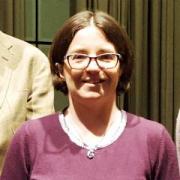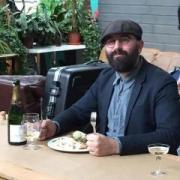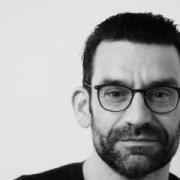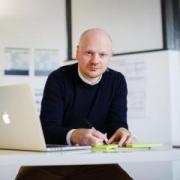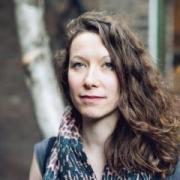What's new this year
Our 2016 event followed a traditional format of 30 min talks, and post-conference conversations in the pub. This year, we are keeping the talks, the pub, but we are adding more coffee to the mix, and, most exciting: workshops!
The theme of this year's World Information Architecture Day is Information Strategy and Structure.
In today’s world, organisations are required to rethink how to architect and manage information to maintain a competitive and organisational edge. Many are embracing strategies that are more flexible, moving away from isolated systems and departmental silos. These organisations recognize the need for information to be structured so that it is clear, usable, findable and understandable.
But, the need for information strategy and structure extends beyond the enterprise. Whether information is architected to inform algorithms, to bring awareness to important societal challenges, or to clearly communicate available resources to help those in need; information strategy and structure plays an important role in our everyday lives.
Code of Conduct
The World IA Day team is dedicated to providing a safe, enjoyable and harassment-free experience for everyone, regardless of gender, age, sexual orientation, disability, physical appearance, body size, race, or religion (or lack thereof). By attending World IA Day you agree to abide by the policies set out in our Code of Conduct.
Get in touch - we are looking for sponsors!
If you are interested in sponsoring, or have any questions, please get in touch at worldiadaylondon@gmail.com
Venue, parking and transit
City, University of London
Northampton Square, EC1V 0HB
Program/Schedule
09.30am - 10.00am
Registration
10.00am - 10.15am
Welcome to WIAD 2017!
10.15am - 10.45am
Nick Marsh
The Information Architecture of Personalised Storytelling
We've been telling universal stories to each other since the beginning of time. We've been telling personal stories, one to one, for just as long. But only recently has it been possible to tell personal stories to millions of individuals.
In this talk Nick Marsh will share what he has learnt about how to structure and design personal stories, unique for each individual, from his time as Head of Product at Lost My Name, a leading personalised book company based in London.
10.50am - 11.20am
Helen Lippell
It's your first day in a taxonomy job. Now what?!
Get some tips from a fellow taxonomist on how to get stuck into a new taxonomy job. Whether you're lucky enough to be creating a brand new taxonomy, or you're picking up the reins from someone else, get advice on getting up to speed quickly and making a difference. I can't tell you where the toilets and the coffee machine are, but this is the next best thing.
11.20am - 11.35am
Morning Coffee
Sponsoring our coffee break gets your brand seen by everyone.
11.35am - 12.05pm
Matt Hollidge
Flatland
For architects of information and UX professionals the majority of our work is surprisingly confined to the ground floor; we are champions of the digital bungalow, ushering users through delightful experiences like Daleks of the sixties unable to climb the stairs of possibility.
Inspired by the history and future of the elevator and how its invention transformed the Manhattan skyline; is the future of content structure on a third axis and could we propose a paradigm of depth that charts the topography of experience as we navigate increasingly connected, content rich environments in three dimensions?
12.10pm - 1.30pm
Lunch
Sponsoring lunch associates your brand with the best part of the day.
1.30pm - 4.30pm
Workshops
Spend the afternoon attending one of 6 in-depth workshops.
Paul Rissen: Beyond the Hero's Journey - The Architecture, Structure and Strategy of Narrative
Storytellers are adept at structuring information, and deploying strategies to achieve particular effects in their audiences. Whether it's through the use of split screen, flashbacks, or even a good old whodunnit, these techniques are key to keeping an audience engaged and informed. We'll examine a number of elements of storytelling craft, exploring the effects each technique helps achieve, why, and how you might use them to improve the products, services and experiences you work on.
Rahel Anne Bailie: The Secret Lives of Structured Content
Structured content is powerful. Structure lets content perform at optimal levels, delivering from multiple content sources, to multiple audiences, into multiple channels, through multiple interfaces, and often with more complexity. As we're challenged to meet the needs of more market segments with personalised content in an increasing number of contexts, it's critical to understand how much structure to apply, and how to make that structure stand up under the stresses of complexity and scale. This workshop will cover the processes for structuring content, and demonstrate the benefits that accrue as the sturdiness of the structures increase.
Sophie Freiermuth: Information Architecture Lean Coffee
If you'd like to get together with other attendees to discuss all topics IA, ask questions, or get advice, this is the workshop for you. Sophie will facilitate this workshop using the Lean Coffee format, so you'll be walking away with a new facilitation technique for your toolbox. Bring suggestions for topics you'd like to discuss or things you'd like to share.
Lean Coffee is a facilitation technique for a structured, but agenda-less discussion. Participants gather, build an agenda, and begin talking. The Lean Coffee format is both easy to follow and effective at facilitating learning and collaboration through group discussions.
Jenny Egan & Paul-Jervis Heath: The information architecture of physical spaces
In this workshop, Paul-Jervis Heath, founder of design consultancy Modern Human, and Jenny Egan, designer at Modern Human, will explore the crossover between physical and digital spaces, considering the elements of organising information, navigation, and wayfinding. Using a public space as an example, attendees will apply IA skills hands-on.
Through a series of projects designing physical spaces, Paul, Jenny and their colleagues at Modern Human have developed a deep understanding of designing intelligent physical environments. Their human-centred design process combines ethnographic design research, interior design, architectural design with experience design and service design to create smart environments. Their work has included designing retail environments that seamlessly integrate digital retail technology into the shopping experience, libraries, museums, and workplaces of the future.
Luisa Sousa, Jo Chambers, Dan Tallis & Rob Scott: Diagrams, maps and models
Drawing a diagram of a system or information architecture is one of the most important skills an IA can develop. Whether you’re describing a structure, explaining a domain or following the path of an experience, being able to visually represent the otherwise abstract end of UX design brings value to projects and coherence to teams. In this workshop three members of the user experience architecture team at the BBC will help you explore ways of drawing systems, structures and experience.
- Learn and share the best ways to represent structures and systems
- Explore the difference between describing structures and the experiences that contain them
- Gets tips on the tools, techniques and process to visually represent relationships and systems
In the workshop we’ll explore a range of techniques. It will help if you come along with a product, project or design challenge in mind. It will also help if you come with own ideas and experiences about what kind of diagrams, maps and models work best for you.
Stephann Makri: Architecting Serendipity - designing for discovery and discoverability
Information Architecture is not only about ensuring and enhancing findability, but also discoverability. Coming across information serendipitously can propel people in unexpected and useful directions, surprising and delighting them along the way. But it is difficult to 'architect' serendipity in digital information environments; the very act of building it into digital products and services can potentially destroy its unexpectness or usefulness. Given this paradox, how how can we best design for discovery and discoverability?
In this workshop, you'll explore the current design space by:
- Discussing these questions in the context of academic research into serendipity and information discovery
- Critiquing examples of existing digital information environments designed to facilitate serendipity.
You'll also explore the future design space by:
- Creating a low-fidelity prototype of a digital information environment (mobile/desktop site/app) that aims to help users discover useful information, people, places or products unexpectedly
- Formulating serendipity-related design guidelines based on your discussion, criquique and design activities.
4.30pm - 5.15pm
Closing Keynote: Giles Colborne
IA vs Algorithms
Are we about to be made redundant by a new wave of user experiences where algorithms create the value and flow? In this talk, Giles will be talking about designers at cxpartners, AirBnB and Spotify create user experiences with algorithms at their core; why algorithms are the new 'usability fail’; and exploring our role and whether we will continue to be able to bring humanity to a future that’s governed by machines.
5.15pm - 5.30pm
Wrapup and Party Directions
5.30pm - Late
After-party
